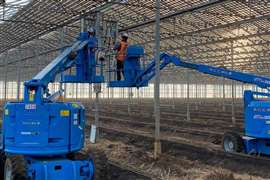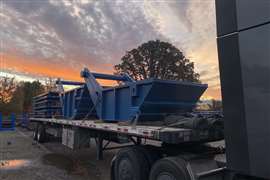Russia’s World Cup spend
19 August 2013
.gif)
Some RUB664 billion (€15.1 billion) is expected to be spent in Russia over the next five years in preparation for the 2018 FIFA football World Cup
This money will come from federal and regional coffers as well as through private investors, according to a report from research company PMR called World Cup 2018 in Russia – Construction Investments.
PMR said that initially, officials of the host cities had submitted projects to be developed for the tournament with a total value of about RUB1,390 billion (€31.6 billion), but only a small number received a green light. Those projects that have not been shortlisted may still be implemented by local authorities, but they won’t receive any funding from the federal budget.
PMR pointed out that the RUB664 billion figure did not cover investment in the construction of stadiums in Kazan and Sochi, or the Spartak Stadium (Otkritie Arena) in Moscow. Also, it said that it only included a minor share of transport infrastructure construction projects that were to be implemented in host cities by mid-2018.
The new stadium in Kazan has been in use since July this year. The stadium in Sochi is to be built by January 2014 and the Spartak Stadium by May 2014.
Most transport infrastructure construction projects are being implemented within a dedicated targeted programme – Development of Russia’s Transport System 2010 to 2020.
According to PMR, it will be a huge challenge for Russian officials to develop nine stadiums by the end of 2017.
The construction of Zenit Stadium in St Petersburg is expected to be completed no earlier than the fourth quarter of 2015, even though the project was launched in 2007.
The reconstruction of Luzhniki Stadium in Moscow and Tsentralny Stadium in Yekaterinburg will start in 2014, at best, it said.
In 2014, there are plans to initiate the construction of new 45,000-seater stadiums in Kaliningrad, Rostov-on-Don, Volgograd, Nizhny Novgorod, Samara and Saransk.
Even though the construction of a new stadium in Saransk was started in 2010, there has been little progress, said PMR. Only the initial stage of construction has been completed, with the areas beneath the stands also having seen some development.
Individual cities differ widely when it comes to accommodation. In all the 2018 World Cup host cities except Saransk there are sufficient numbers of beds for official guests. However, some of the host cities do not have enough beds to accommodate fans.
Among the cities hosting the 2018 World Cup, Moscow and St Petersburg have the most beds, while Kaliningrad and Saransk have the lowest ratio of hotel beds available.
PMR said that under current macroeconomic conditions, private investors were expected to be more reticent about setting up new projects in regional cities. Investors have to consider how new facilities will be used after the tournament, as the occupancy rate in many host cities is currently far from levels that would encourage the development of new projects, it said.
Russian transportation infrastructure for the 2018 World Cup is planned to be constructed and modernised on a large scale. By the time of the tournament, the motorway connecting Moscow and St Petersburg will have to have been constructed, and the Don, Ukraine, Ural, Kaspiy, Volga and Russia federal highways will need to have been fully modernised.
Large projects will be also rolled out in the railway construction segment. PMR said that the most expensive railway construction projects to have been implemented in Russia by 2020 would be the expansion of the Baykal-Amur Main Line and Trans-Siberian railway lines.
According to PMR estimates, during the period to 2018, the aggregate capital expenditure on the 13 Russian airports handling passengers attending the 2018 World Cup will total nearly RUB193 billion (€4.4 billion), with the projects planned in Moscow, St Petersburg and Rostov-on-Don being the most costly.






